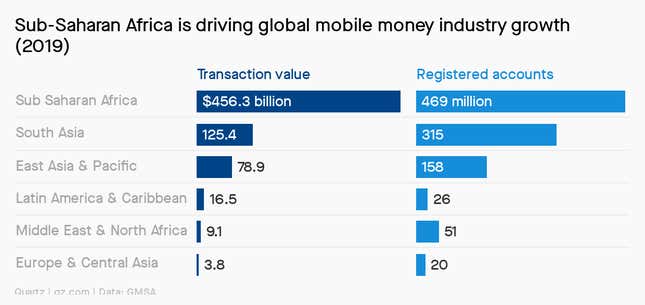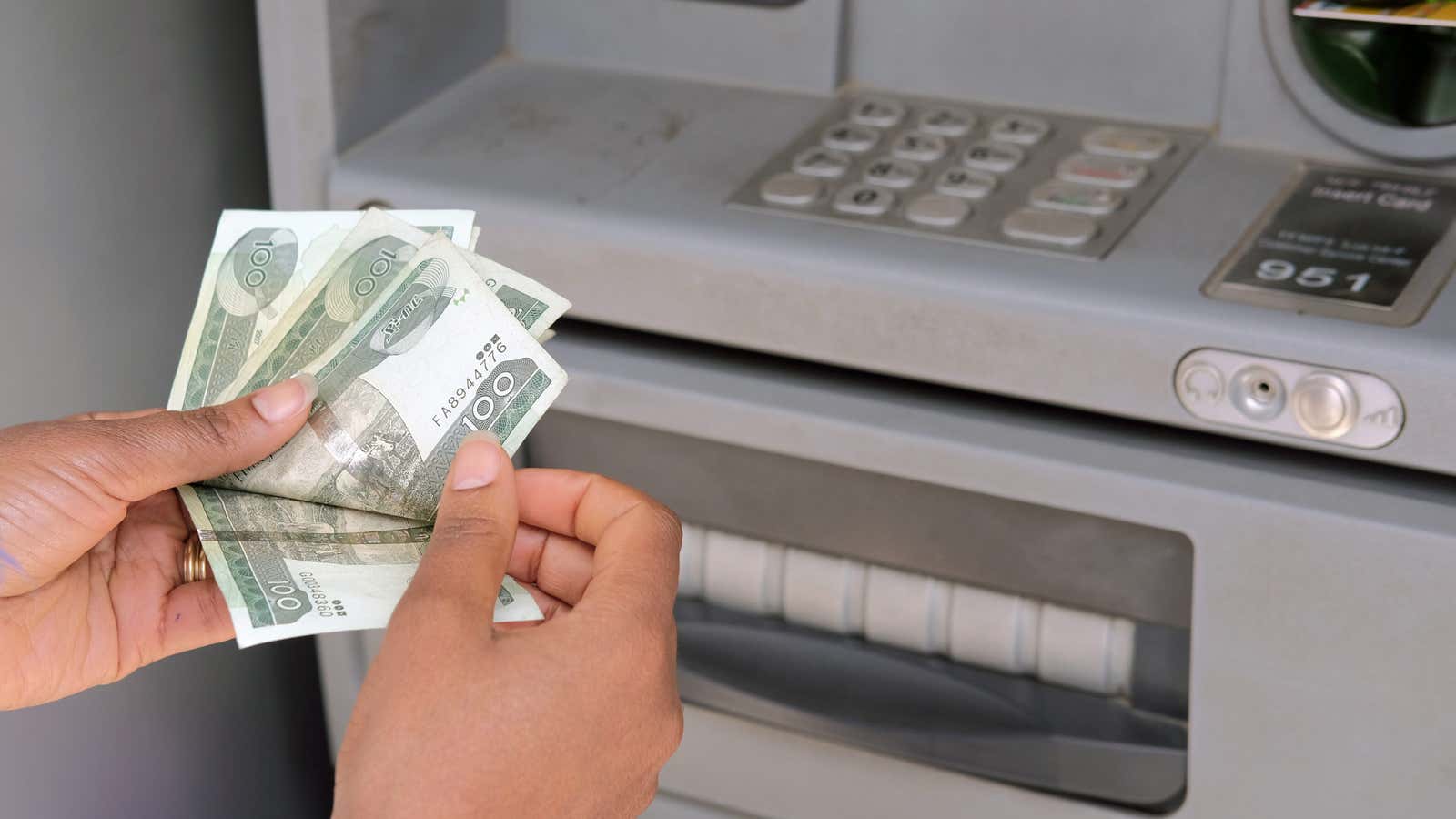Ethiopia is going to allow new entrants to offer mobile money services as part of its $10 billion home-grown economic reform agenda.
The National Bank of Ethiopia says the new directive will help it offer licenses to mobile money service providers requiring they put up 50 million Ethiopian Birr ($1.6 million) as a minimum requirement. The amount is to be deposited in a blocked account but no individual, other than government is allowed to hold more than 20% of the shares of any licensed mobile money service provider. In addition, any company other than a government enterprise is also required to have a minimum of 10 shareholders.
The hope is these moves, part of a wider set of promised economic reforms under prime minister Abiy Ahmed will help open up the Ethiopian economy. The government is also looking at privatizing Ethio Telecom and Ethiopian Airlines. It is hoped this banking reform will help ramp up financial inclusion in Africa’s second most populous country.
“The reality is, 60% to 70% of Ethiopia’s population do not use conventional financial services and the status quo has not been working”, says Henok Assefa, manager partner of Precise Consult based in Addis Ababa. “The new system allows non-banks to avail themselves to be an alternative, including Ethio Telecom that can reach 40 million of its customers to the banking fold”.
The new directive also states the maximum individual electronic money account balance is to have a minimum of 5,000 Birr ($166.60), while the total liabilities of mobile money service providers should not exceed 5 million Birr ($166,666).
In 2018, the Ethiopian government held advanced talks with Kenya’s Safaricom to expand its M-Pesa service, one of Africa’s leading mobile money services with more than 23 million users in Kenya alone. It also operates in Tanzania and Uganda among others.
The new directive is also expected to encourage and diversify the interest of investors in financial services that have been largely restricted to banks, insurance firms, lease financiers and micro-finance institutions.
“Allowing non-financial institutions to engage in these areas has merits in terms of financial inclusion, deposit mobilization, facilitating transactions and encouraging investments,” says Abdulmenan Mohammed, a financial analyst based in London. “However, there should be adequate regulatory framework in supervisory capacity in place as the number of service providers will be large and the number of products will be diverse,” he adds.
There are 16 private and two state-owned banks in Ethiopia. In the past two decades, the number of branches of commercial banks has shown a 30-fold rise to over 6,000 now. But this is insignificant as the country’s population has risen to over 100 million.
According to National Bank of Ethiopia, over 75% of Ethiopia’s population is unbanked, while nearly 40% of all bank branches are in the capital city Addis Ababa.
“Mobile money services are hopeful. But its success depends on the reliability of mobile networks, the quality and suitability of the services, public trust on the providers and the adequacy of regulation,” says Abdulmenan.
There are over 45 million mobile subscribers in Ethiopia where there is 22.7 million internet users, up from 15.7 million four years ago, while smart phone ownership doubled to more than 12 million, according to the National Bank of Ethiopia.
Ethiopia’s leading mobile money service M-Birr, which launched in 2013, is said to serve around 2 million Ethiopians, according to the European Investment Bank which backed the service with a €3 million equity investment in 2018.

By opening the market the hope will be Ethiopia will join Africa’s rapid adoption of mobile money services. This is unlikely to slow down across the continent given the evidence of its impact on individuals and businesses who, previously cut off from digital and formal economies, can now pay bills and make transfers at the touch of a few buttons. GSMA, the global mobile industry trade body, already forecasts registered mobile money accounts across Sub Saharan Africa (currently at 469 million) will cross the half billion mark by the end of the year.
The adoption of mobile money services is getting extra support in recent weeks because of concerns around the use of cash during the coronavirus pandemic.
Sign up to the Quartz Africa Weekly Brief here for news and analysis on African business, tech and innovation in your inbox
